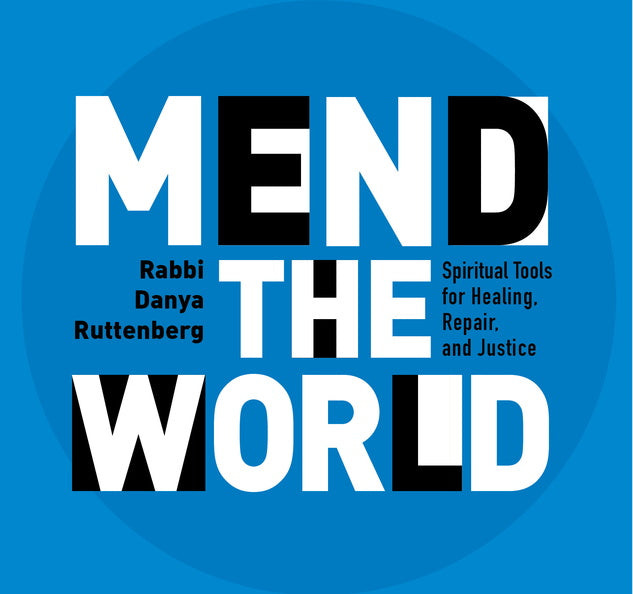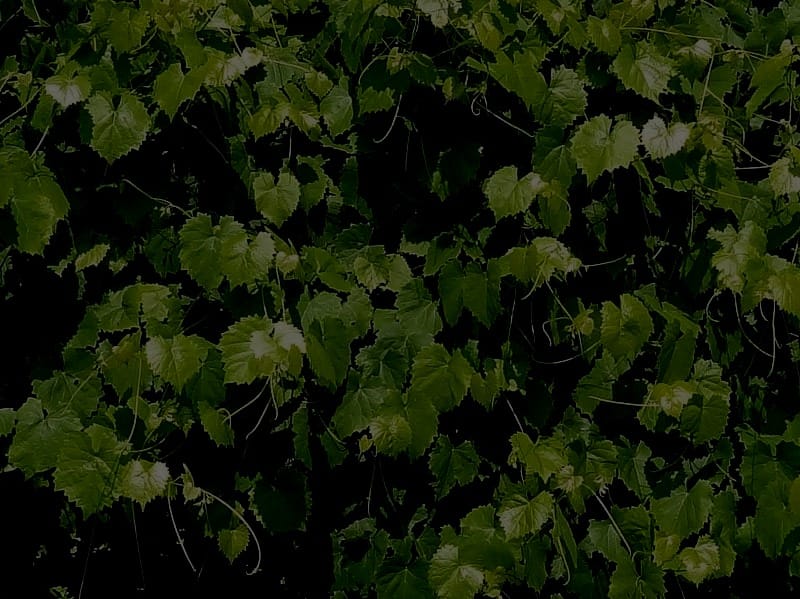the point of it all
we serve God when we care for one another

This is Life as a Sacred Text 🌱, an everybody-celebrating, justice-centered voyage into ancient stories that can illuminate our own lives. It‘s run on a nonprofit, so it’s 100% NAZI FREE. More about the project here, and to subscribe, go here:
Less than a week after the 2016 election, I found myself at the biggest mainstream Jewish conference in my universe—the same day Trump had announced that he was appointing noted white supremacist and antisemite Steve Bannon as a chief strategist.
I ran into a lot of people I knew there, many of whom were executive directors, presidents and vice-presidents, important rabbis, heads of boards.
“How is your organization planning to address the election, especially in light of the Bannon appointment?” I would ask colleagues and acquaintances as we made small talk in the lobby.
Some of the heads of small, nimble nonprofits or left-leaning denominations had quick and able answers. The bigger the organization, though, the more likely it was that my interlocutor would begin to mumble about the risks of angering right-wing donors and the like.
“Dig a hole and hide in it,” responded the head of one major organization.
He’s now got a position of even greater power and prominence in the community.

We have arrived, finally, to the Holy of Holies, the innermost sanctum of the Torah.
As we’ve discussed more than once, the Torah is a chiasm, a textual sandwich in which what matters most is at the center.
The centermost book is Leviticus. The centermost chapter is 19.
The centermost verse?
וְאָהַבְתָּ לְרֵעֲךָ כָּמוֹךָ אֲנִי ה׳׃
Love your neighbor as yourself: I am God. (Leviticus 19:18)
That’s the heart.
That’s the beating, living, pulsing heart of Torah.
That’s what pumps blood out to the rest of Judaism, the rest of mitzvot, the rest of spirituality, the rest of service to the divine, the rest of our work down here as people, the rest of everything.
That line.

Rabbi Akiva, one of the greatest ancient rabbinic sages, is recorded in several places (Sifra, Kedoshim 4:12, Jerusalem Talmud Nedarim 9:4:3, Genesis Rabbah 24:7) as asserting that "V'ahavta l're'echa k'mocha," you should love your neighbor as yourself, is the greatest principle of the whole entire Torah.1
Love others.
but also?
Love yourself.
This mitzvah is more important than keeping kosher or Shabbat, more important than fancy ritual acts of devotion, more important, even, than,
"You should love God your deity with all your heart, all your soul, and with all your might." (Deuteronomy 6:5)
The most important act of spiritual service that you can do is to love other people with all the compassion and engagement that you would wish someone else to offer you, that you would offer yourself.
There are two categories of commandments in the Torah: those between people and the divine, and those between people and other people.
The Ten Commandments is said to be split straight down the middle—the first half is all about not committing idolatry, not taking God's name in vain, keeping Shabbat and so forth. The last five—don't steal, don't kill, don't commit adultery, don't desire what isn't yours—are all about how we can create community together.
When people describe someone as religiously observant, they usually mean that they pray on a regular basis, keep kosher, observe the Sabbath and holidays in a traditional manner—all that "between us and God" stuff.
Regardless of whether or not this person engages in malicious gossip, whether or not she gives as generously to charity as they can, whether or not they relate with care to strangers and guests.
Regardless of whether or not they stayed silent, despite having strong communal clout when terrifying people began to take power in the country.
It's a mistake to downplay the importance—both the holiness and the religious significance—of this work that happens between and among us.
We serve the Holy when we care for each other.
When we fight for one another.
When we ensure each other’s safety, wholeness, ability to thrive.
The interpersonal love that we offer, the acts of service, the moments in which we act as though other people matter in this world and show up for them, are, Rabbi Akiva tells us, the point of this whole thing.
After all, if we pray piously every morning and then, after leaving our house of worship, make decisions that reflect the idea that other people don’t matter—whether ignoring the unhoused person on the corner or scrolling past the news that your state senate is introducing a bill with horrific human rights impacts—what kind of spiritual life is that?? What kind of life is that?
When we do spiritual work that forces our hearts to open, our hearts become opened.
When we practice extending ourselves in love and care, we learn better how to love and to care for others.
And it might even be that when we let ourselves go down, deep down into that love, that we can meet the transcendent there.
Maimonides, everybody’s2 favorite 12th century philosopher and legal scholar, wrote,
"What is the way to love and be in awe of God? … As the Sages said regarding love, through this you know the One who spoke and [created] the Universe.” (Maimonedes, Mishnah Torah, Laws of the Foundation of the Torah, 2:2)
That is, we know God through love. Our acts of love are the path in.
They’re not practice, not rehearsal, not the second-best consolation prize. They’re a good unto themselves that can offer us access to ultimate wisdom—if we take the possibility of giving love seriously.

In 1963, Rabbi Abraham Joshua Heschel sent a telegram to President John F. Kennedy in anticipation of an upcoming meeting. He wrote, in part,
“LIKELIHOOD EXISTS THAT [BLACK AMERICAN] PROBLEM WILL BE LIKE THE WEATHER. EVERYBODY TALKS ABOUT IT BUT NOBODY DOES ANYTHING ABOUT IT. PLEASE DEMAND OF RELIGIOUS LEADERS PERSONAL INVOLVEMENT NOT JUST SOLEMN DECLARATION…PROPOSE THAT YOU MR. PRESIDENT DECLARE STATE OF MORAL EMERGENCY. A MARSHALL PLAN FOR AID TO [BLACK AMERICANS] IS BECOMING A NECESSITY. THE HOUR CALLS FOR HIGH MORAL GRANDEUR AND SPIRITUAL AUDACITY.”
High moral grandeur and spiritual audacity.
Moral grandeur involves real personal risk. We may have known this intellectually, but it is indeed a different thing when one’s own work is on the line.
When we give ourselves over to helping other people? That’s a profound, and profoundly underrated, spiritual practice.
When we do the work to make the world a better place, we tap into the ways in which we are all interconnected.
(For more on how caring for others can help us tap into the Big Bigness, this excerpt from my book Nurture the Wow: Finding Spirituality in the Frustration, Boredom, Tears, Poop, Desperation, Wonder, and Radical Amazement of Parenting might be of interest.)
When we learn Torah and pray with the intention of being useful to the world, what we learn and how we learn it is informed by this intention, and we approach our work out there in the world with more depth and rootedness.
For example, it’s not for nothing that the authoritative law code the Shulchan Aurch (Orech Hyyim, 92:10) recommends donating a small bit of money before prayer. It may, among other reasons, change about whom and what you were going to pray—perhaps the act of reaching in to your pocket and extracting money you could have spent on something else—and, instead, giving it away, giving it to those in need—inspires you into a different space, emotionally and spiritually. Which then—might change what you pray for. A little less focus on small self and a little more awareness of the larger needs, the broader scope of pain and suffering out there, perhaps? And then those prayers can carry you though the day with a totally different lens, a different set of intentions. And enable you to take action in a different way.
In the Biblical tradition, the prophet, rather than being a seer, was one who brought truth, at great personal risk, on behalf of those who were most impacted by harm. They were intercessors on behalf of higher moral values—those who prioritized caring and connection above even commonly-understood expressions of the holy. As Hosea cried,
"For I desire lovingkindness, and not sacrifices, and knowledge of God more than burnt offerings!" (Hosea 6:6)
Heschel’s call for “moral grandeur and spiritual audacity” was very much steeped in that tradition; he had published The Prophets mere months before sending the telegram to Kennedy. In that book, he noted the characteristics of the prophet: sensitivity to evil, aware of the importance of trivialities, concerned with the highest good, and "challenging the apparently holy, [and] revered.”
Even—yes even—“institutions endowed with supreme sanctity.”
This is the hour for us to be sensitive to evil.
To challenge the apparently holy and revered—even institutions.
Our eyes must remain fixed on our own highest values and the highest values of our country: the safety and security of all who live here, the freedoms and protections offered in our Constitution, our unalienable right to life, liberty, and the pursuit of happiness.
And we must make the choice to risk our own comfort, access to privilege, and perhaps well-being in order to do so.
The hour calls for moral grandeur and spiritual audacity.
We must love our neighbor as ourselves.
This is all so fraught, especially given that we all have limited time and resources—where should we give? Which things should we protest? When to call our reps and when to storm the town hall? How can we have an impact? How can we navigate our feelings of overwhelm and despair?
We can.
We can have an impact.
We can find our place in the work.
But we can’t without support.
Now, more than ever, we need to double-down on our spiritual practices.
This might look like a lot of different things.
I define a spiritual practice as an ongoing, repeated activity that, when performed with intentionality, can transform how we understand ourselves, others, the world around us—and our connection to the sacred, the Universe, or God, if that sort of language works for you. It might be prayer, meditation, painting, writing, yoga, hiking, or running—even parenting, if you do it with the right set of lenses on.
It might seem paradoxical to call for more attention on inward-focused work during a time when there are so many urgent needs for our time and energy. But we’ll be more useful to the work out there if we can be drawing more deeply from the resources within. “Love our neighbor as ourselves” starts with self and radiates outward.
We must do the work that will support us and nourish us so that we can access the part of us that can be brave. That can feel safe enough to take the urgent risks needed in this moment. That can show up for others, and offer of ourselves.
That can remember that we are here to be of service.
Rabbi Akiva was a student of Eliezer ben Hurcanus, who was a student of Yohanan ben Zakkai, who was a student of Hillel’s. Hillel famously said (Pirke Avot/Ethics of the Sages 1:14)
If I am not for myself, who will be for me?
But if I am only for myself, what am I?
If not now, when?
It must radiate outward.
There is no other way.
Here’s a sweet lil’ version of the song, “Amar Rabbi Akiva/Rabbi Akiva Said,” adding in a reference to Mishnah Pirke Avot 5:10.
Rabbi Avika said: “Love your neighbor as yourself”—this is a great principle in the Torah. What’s mine is yours—this is a great principle in the Torah.
Also—I did a whole audio course where I took like 15 years’ worth of work on this stuff and pulled it into eight sessions on using the tools of spiritual practice to transform into being someone more useful to the world; finding your role in the work; navigating interpersonal stickiness; accessing your prophetic voice; community and solidarity; and a whole lotta other stuff. More info and such here:

But, most importantly: Go find a way to be useful to others. Today. Now.
🌱 Like this? Get more:
Life is a Sacred Text is a reader-supported publication. To get new posts and support this project, become a free or paid subscriber. New posts Free every Monday, and paid subscribers get even more text and provocation, every Thursday.
And please know that if you want into the Thursday conversations but paying isn’t on the menu for you right now, we’ve got you. Just email lifeisasacredtext@gmail.com for a hookup.
And if you’d like to underwrite one of these donated subscriptions, you can do so by subscribing at a higher tier.
Please share this post:
💖 Sending a big pile of blessings and goodness your way. 💖
Yep, Christian friends, I know Jesus was a big fan of that verse, too. “This is the key verse in the Torah” was a game that tannaaim played, it seems. I’m still over here believing that Jesus was an early tanna/pharisee, officially or just of the general zeitgeist of the House of Hillel. And that the so called “Pharisees” were actually tanaaim of the House of Shammai and he was yelling at them the way Beit Hillel folks yelled at Beit Shammai, more or less (and vice versa). Spicy but family, you know? (When you track what he’s arguing, and what he claims their positions are, it tracks.) Except the Gospels were written down AFTER the Jewish-Christian split so that was elided a bunch. How you tell a story about your ex after a bitter divorce might be a little different than how you actually experienced it when you were together, sometimes? ↩
OK, mine ↩


